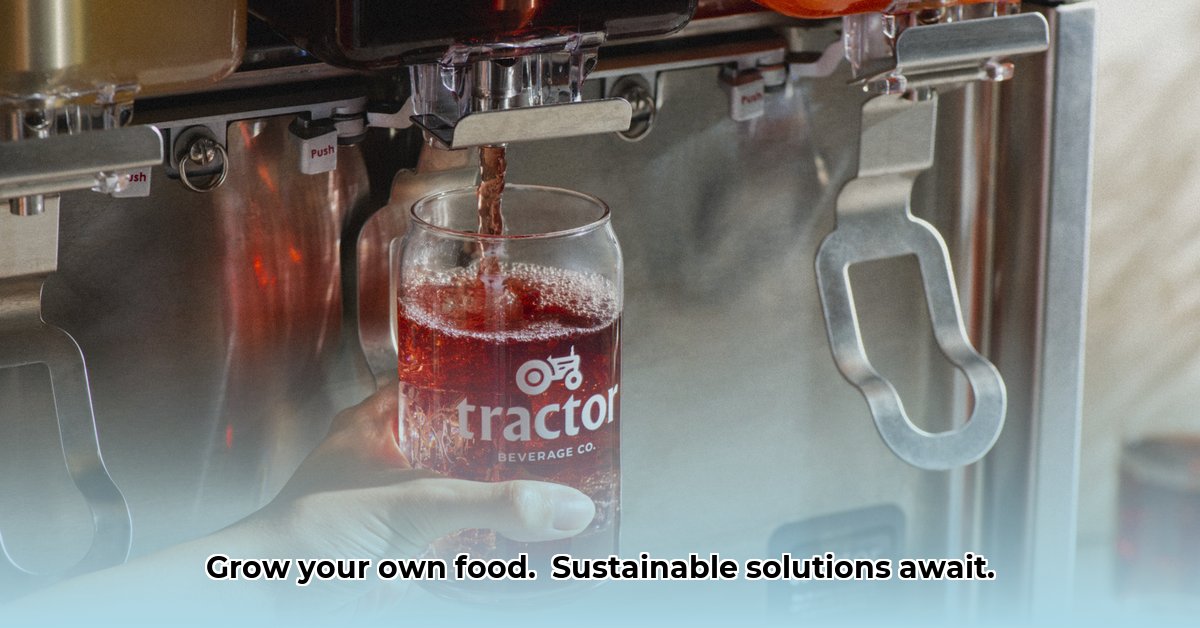
Berry Tractor's Role in Kansas and Missouri Agriculture
Berry Tractor Garden City is a major supplier of agricultural equipment in Kansas and Missouri, providing tractors, harvesters, and other machinery crucial for large-scale farming operations. For more information on tractor usage, see this helpful resource: Tractor Use Guide. While not explicitly focused on sustainability marketing, the company's impact on sustainable agricultural practices is significant, albeit indirect. This analysis examines Berry Tractor's contribution to sustainable agriculture, highlighting both its strengths and areas for improvement, and offering actionable recommendations for the company, its customers, and policymakers.
Berry Tractor's Equipment and its Indirect Contribution to Sustainable Agriculture
Berry Tractor's machinery enables several sustainable farming practices. Efficient land management, a key element of sustainable agriculture, benefits from precise land clearing facilitated by their dozers and excavators. This minimizes soil disruption, promoting long-term soil health. Their equipment also aids in constructing efficient irrigation systems, optimizing water usage and reducing waste. Improved infrastructure, provided through the use of Berry Tractor's machinery, increases overall farm output, a critical component of profitable and sustainable agriculture. But how much fuel efficiency does this equipment actually offer? Are there data available to verify the stated improvements in efficiency? These are crucial questions for the true assessment of Berry Tractor's contribution.
Limitations and Opportunities: Transparency and Sustainability Initiatives
Despite the potential benefits, Berry Tractor lacks publicly available data on its environmental impact. A lack of transparency regarding its carbon footprint, emission levels, and supply chain sustainability hinders a complete evaluation of its environmental performance. This absence of clearly defined sustainability initiatives raises concerns among environmentally conscious farmers and investors. Could a more specific sustainability strategy improve their market standing and public perception? Indeed, increasing consumer demand for transparent, ethical practices in the agricultural sector suggests that embracing sustainability could be a significant competitive opportunity.
Actionable Recommendations for a Greener Future
To maximize Berry Tractor's positive impact on sustainable agriculture, a multifaceted approach is necessary:
1. For Berry Tractor Garden City:
- Conduct a Comprehensive Sustainability Audit: A detailed analysis of the entire operational process, from manufacturing to disposal, is critical to identify areas for improvement and quantify the current environmental footprint. This audit should include lifecycle assessments of all equipment and should utilize standardized metrics for reporting.
- Develop a Robust ESG (Environmental, Social, and Governance) Strategy: This strategy should include specific, measurable, achievable, relevant, and time-bound (SMART) goals for environmental performance, social responsibility, and responsible governance.
- Publicly Report on Environmental Impact: Transparency is paramount. Regularly releasing data on carbon footprint, energy consumption, waste generation, and supply chain sustainability is crucial for building trust and credibility among stakeholders.
- Invest in Partnerships and Research: Collaboration with fuel-efficient equipment manufacturers and researchers can lead to incorporating more eco-friendly technology and potentially exploring alternative fuel sources.
- Educate Customers on Sustainable Practices: Provide farmers with information and training on utilizing their equipment for sustainable agricultural practices, including methods to optimize fuel consumption and emissions.
2. For Equipment Manufacturers:
- Invest in R&D for Sustainable Machinery: Prioritize the development and marketing of fuel-efficient, lower-emission equipment, reflecting the market's increasing demand for sustainability.
- Collaborate on Sustainable Technology: Sharing knowledge and resources across manufacturers can accelerate the adoption of environmentally friendly technologies. Industry-wide standards for reporting environmental impact are essential.
3. For Farmers and Agricultural Businesses:
- Prioritize Fuel-Efficient Equipment: Make informed purchasing decisions based on fuel efficiency and environmental impact, driving market demand for greener options.
- Embrace Precision Agriculture: Utilize technology for precise planting, fertilization, and irrigation to reduce waste and maximize efficiency.
4. For Government Agencies:
- Offer Tax Incentives for Sustainable Equipment Purchases: Financial incentives can make greener choices more accessible and attractive to farmers.
- Implement and Enforce Stricter Emission Standards: Regulations are vital in pushing the adoption of cleaner technologies across the agricultural machinery sector.
Conclusion: A Collaborative Path Toward Sustainable Agriculture
Berry Tractor Garden City holds a pivotal role within the agricultural ecosystem. Its influence extends beyond equipment provision; it shapes farming practices across a large region. A commitment to sustainability is not just ethically responsible but also crucial for long-term growth and market competitiveness. By embracing transparency, investing in sustainable technologies, and promoting collaboration across the agricultural supply chain, Berry Tractor can contribute significantly to a more sustainable and prosperous agricultural future. The continual pursuit of improvement through research and adaptation is key to achieving this goal. But are Berry Tractor’s actions aligning with these ideals? Only time and further transparency will tell.